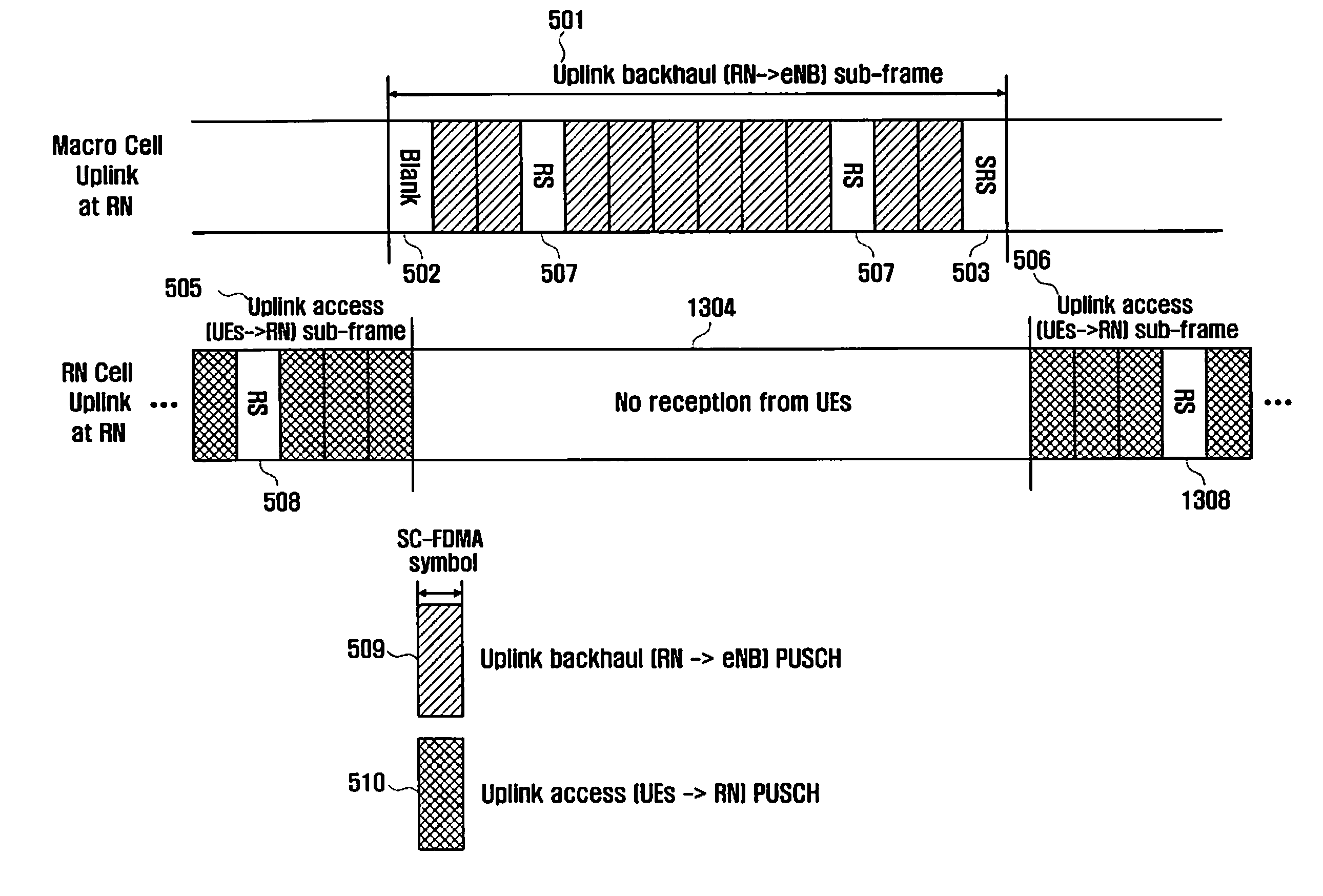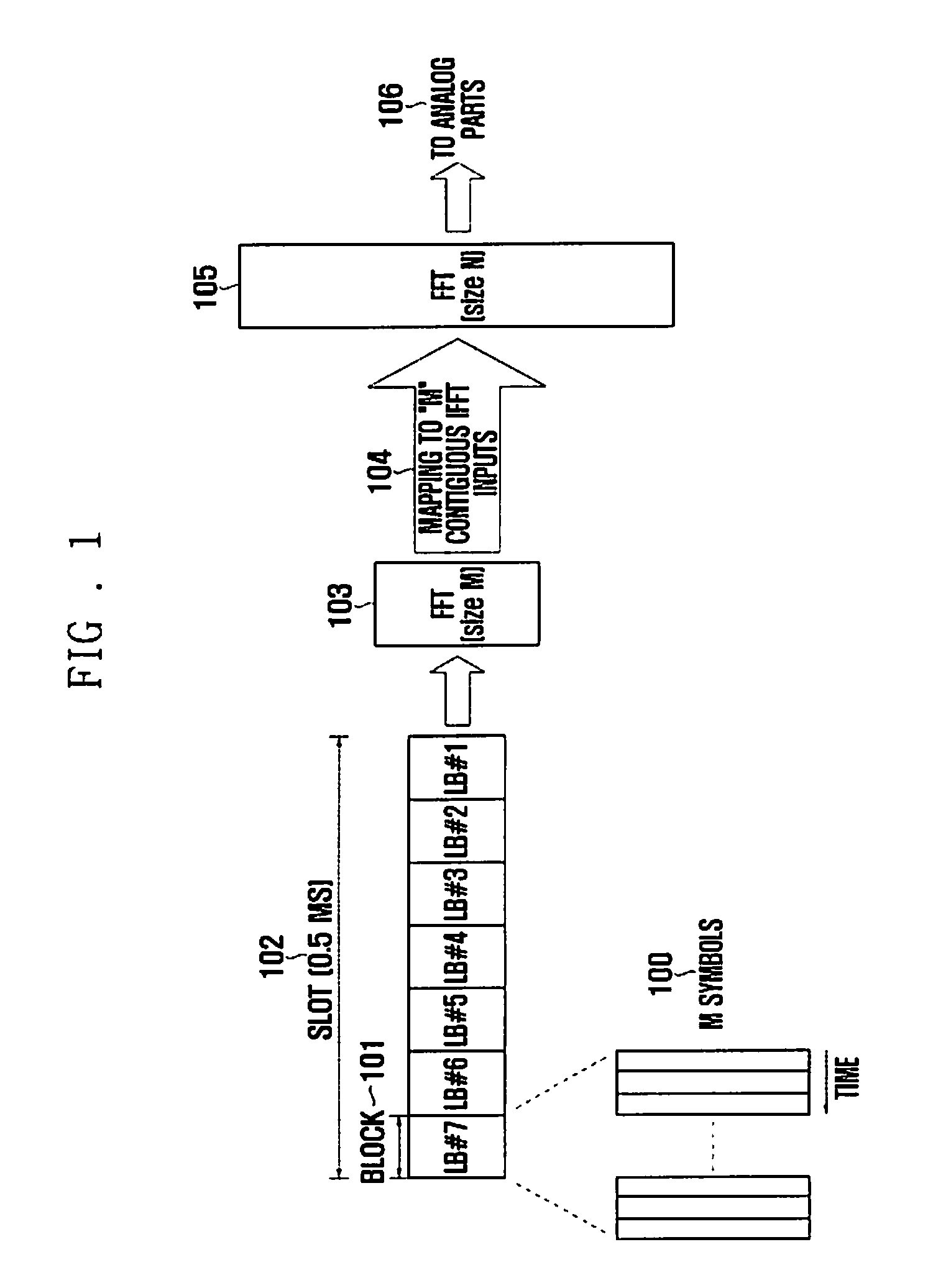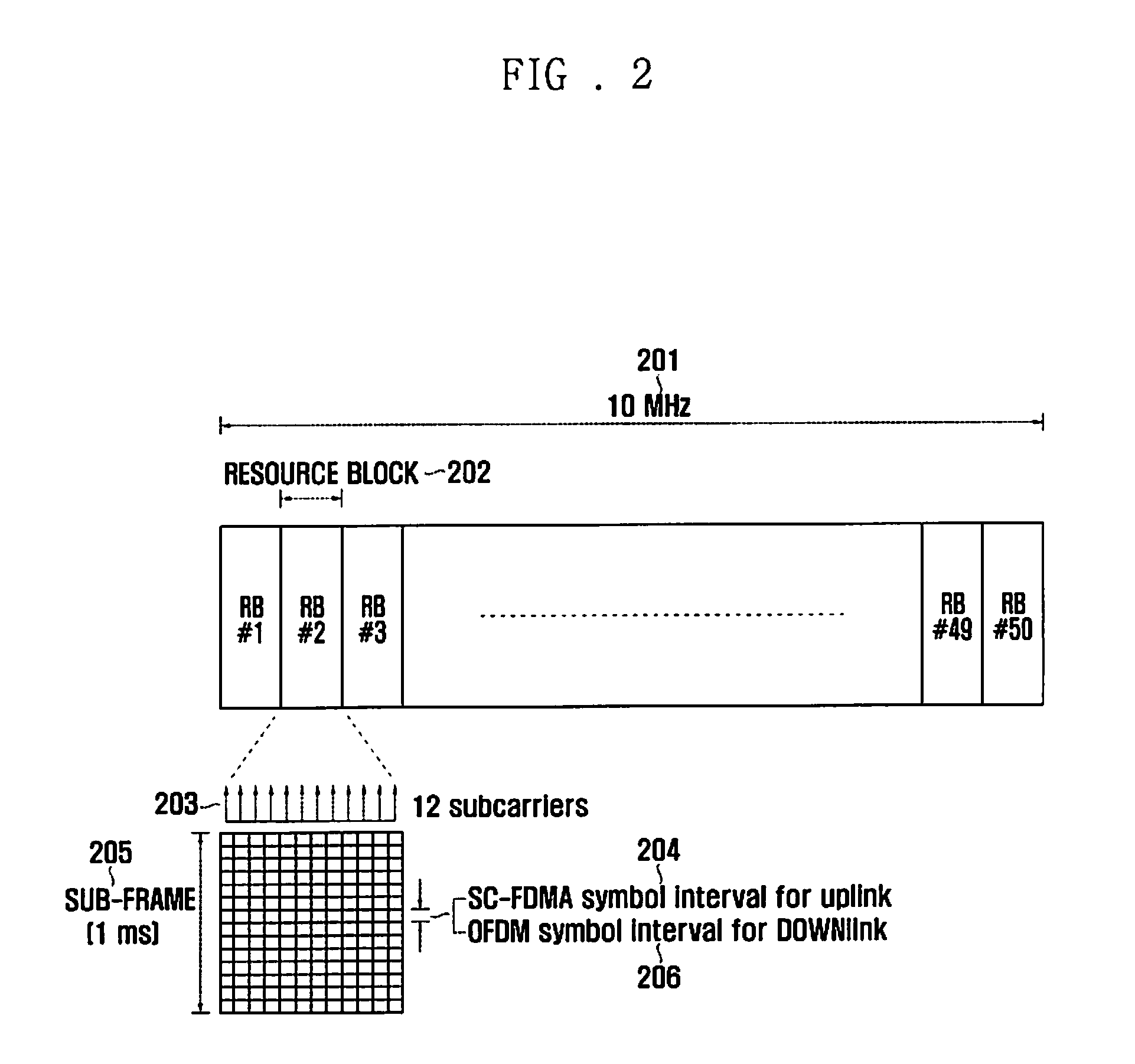Method and apparatus for allocating backhaul transmission resource in wireless communication system based on relay
a wireless communication system and transmission resource technology, applied in the field of wireless communication system wireless relay, can solve problems such as switching time delay at relay nodes, and achieve the effects of minimizing influence on conventional systems, avoiding overlap, and better using wireless backhaul resources
- Summary
- Abstract
- Description
- Claims
- Application Information
AI Technical Summary
Benefits of technology
Problems solved by technology
Method used
Image
Examples
first embodiment
The First Embodiment
[0058]FIG. 5 is a diagram illustrating an uplink backhaul sub-frame structure in an L3 relay system in accordance with the first embodiment of the present invention. Particularly, the first embodiment takes into consideration the case of allowing SRS transmission in an uplink backhaul sub-frame. The SRS is used for the regulation of transmission timing of a relay node. Also, channel condition information on frequency domain of a wireless backhaul link obtained through the SRS by a base station is used for scheduling of wireless backhaul resources.
[0059]Referring to FIG. 5, a reference number 501 indicates an uplink backhaul sub-frame region used for transmission from a Relay Node (RN) to a base station which is also referred to as e-Node-B (eNB) in 3GPP terminology. Since the relay node has no reception in the uplink backhaul sub-frame region 501, no uplink resources are allocated to User Equipment (UE) in a relay node cell as indicated by a reference number 504....
second embodiment
The Second Embodiment
[0072]FIG. 8 is a diagram illustrating an uplink backhaul sub-frame structure in an L3 relay system in accordance with the second embodiment of the present invention. Particularly, the second embodiment is limited to the case where an uplink backhaul sub-frame does not transmit the SRS.
[0073]Referring to FIG. 8, a reference number 801 indicates an uplink backhaul sub-frame region used for transmission from the Relay Node (RN) to the base station (e.g. eNB). Since the relay node has no reception in the uplink backhaul sub-frame region 801, no uplink resources are allocated to User Equipment (UE) in a relay node cell as indicated by a reference number 803. Regions except the uplink backhaul sub-frame region 801 correspond to uplink access sub-frame regions 804 and 805 of user equipment in the relay node cell. The relay node receives signals from user equipment in these regions 804 and 805.
[0074]Since the sync of the uplink backhaul sub-frame of the relay node coin...
third embodiment
The Third Embodiment
[0078]FIG. 9 is a diagram illustrating a downlink backhaul sub-frame structure in an L3 relay system in accordance with the third embodiment of the present invention.
[0079]Referring to FIG. 9, the Relay Node (RN) sends PDCCH 912 to User Equipment (UE) in the relay node cell just before receiving a downlink backhaul sub-frame from the base station (e.g. eNB). Also, the base station may transmit the downlink backhaul sub-frame by performing a Frequency Division Multiplexing (FDM) for PDCCH 902 and PDSCH 903 of user equipment in the macro cell. This structure is for the purpose of maintaining the compatibility with conventional LTE systems.
[0080]In the third embodiment as well, RF transmission / reception switching time delays 906 and 907 are invoked respectively just before and just after reception of the downlink backhaul sub-frame. In order to apply such a switching time delay to the backhaul sub-frame, the base station does not use the last OFDM symbol in transmis...
PUM
 Login to View More
Login to View More Abstract
Description
Claims
Application Information
 Login to View More
Login to View More - R&D
- Intellectual Property
- Life Sciences
- Materials
- Tech Scout
- Unparalleled Data Quality
- Higher Quality Content
- 60% Fewer Hallucinations
Browse by: Latest US Patents, China's latest patents, Technical Efficacy Thesaurus, Application Domain, Technology Topic, Popular Technical Reports.
© 2025 PatSnap. All rights reserved.Legal|Privacy policy|Modern Slavery Act Transparency Statement|Sitemap|About US| Contact US: help@patsnap.com



